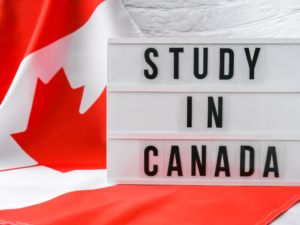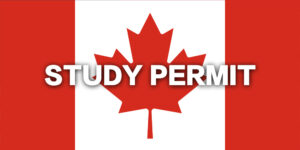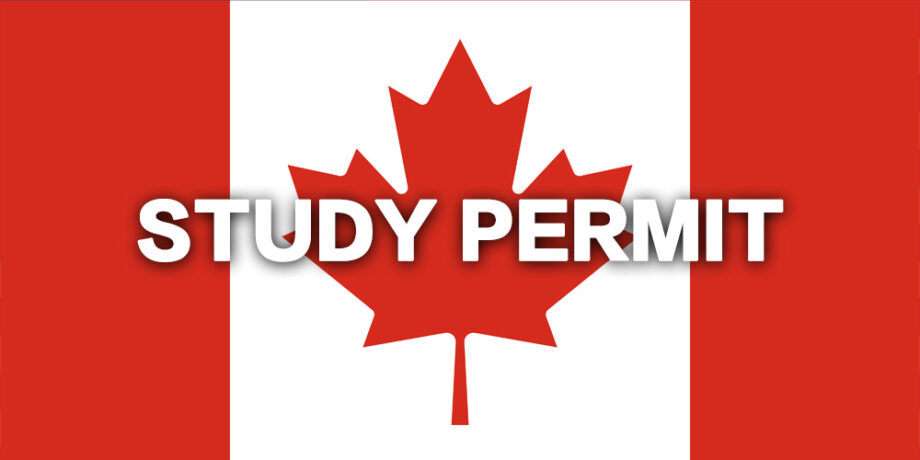Study Visa inside Canada

Study Visa inside Canada: Process, Policy, and Realities
Introduction
Canada has become one of the most popular destinations for international education, welcoming hundreds of thousands of students from around the world each year. The country’s high-quality education system, multicultural environment, and post-graduate work opportunities have made it especially attractive. While many students apply for study permits from outside Canada, a significant number also apply from within Canada. These are individuals who may already be in the country on a visitor visa, a work permit, or as family members of foreign workers, refugees, or temporary residents. Others may be transitioning from primary or secondary school to post-secondary institutions within Canada.
This essay explores the study permit process inside Canada in detail. It discusses the legal basis for the application, eligibility criteria, application steps, rights and responsibilities of study permit holders, challenges they may face, and the broader implications for Canadian immigration policy.
1. Legal and Policy Framework: Study Visa inside Canada
Study permits are governed by the Immigration and Refugee Protection Act (IRPA) and Immigration and Refugee Protection Regulations (IRPR), administered by Immigration, Refugees and Citizenship Canada (IRCC). A study permit is a written authorization that allows foreign nationals to study at Designated Learning Institutions (DLIs) in Canada.
While most international students apply from outside Canada, Section R215 of the IRPR outlines specific circumstances where individuals can apply from within the country. This provision is crucial for maintaining legal status and continuity of education for those already residing temporarily in Canada.
2. Who Can Apply for a Study Visa inside Canada ?
Not everyone can apply for a study permit while inside Canada. According to IRCC, the following groups are eligible:
-
Students at the preschool, primary, or secondary level in Canada.
-
Exchange or visiting students.
-
Spouses, common-law partners, or dependants of:
-
athletes,
-
media representatives,
-
members of the clergy,
-
military personnel,
-
foreign diplomats or consular officers.
-
-
Temporary residents who have completed a short-term course or program of study that is a prerequisite for a longer program at a DLI.
-
Holders of valid work or study permits who want to change or extend their study program.
-
Refugee claimants or their family members.
-
Individuals under a removal order that has not been enforced.
These categories reflect a commitment to flexibility and inclusion, particularly for individuals already contributing to Canadian society in various ways.

3. Application Process: Inside Canada: Study Visa inside Canada
Step 1: Acceptance from a DLI
The first step is receiving a Letter of Acceptance (LOA) from a Designated Learning Institution. The LOA must meet specific IRCC requirements and indicate:
-
Program of study
-
Duration
-
Start and end dates
-
Tuition fees
-
Mode of study (online/in-person)
DLIs include universities, colleges, technical schools, and some private institutions.
Step 2: Gather Required Documents: Study Visa inside Canada
A complete application must include:
-
Letter of Acceptance from a DLI
-
Proof of financial support (e.g., bank statements, sponsor letters)
-
Valid passport or travel document
-
Immigration medical exam results (if required)
-
Biometrics (if not already submitted within 10 years)
-
Any additional documents specific to the applicant’s situation (e.g., work permit, refugee claimant ID)
Applicants may also submit a Letter of Explanation, clarifying their intentions, ties to Canada, and long-term goals.
Step 3: Submit Online Application: Study Visa inside Canada
All in-Canada applications are now submitted online through the IRCC secure portal. The current fee for a study permit application is CAD $150, plus CAD $85 for biometrics, if applicable.
Applicants are expected to remain in Canada and maintain legal status during the processing period. In many cases, they are issued implied status, allowing them to remain in Canada legally until a decision is made.
Step 4: Wait for Processing: Study Visa inside Canada
Processing times vary but typically range from 3 to 10 weeks for in-Canada applications. Applicants can check processing status on the IRCC website.
If the application is approved, the applicant receives a study permit document. It does not grant re-entry to Canada, so if a student needs to travel outside the country, they must also hold a valid temporary resident visa (TRV) or Electronic Travel Authorization (eTA), depending on their nationality.

4. Financial Requirements
Applicants must prove they can support themselves during their studies. As of 2024, the general requirement is:
-
CAD $20,635 per year for a single applicant (excluding tuition)
-
Additional amounts for family members:
-
$7,000 for the first additional family member
-
$3,000 per additional family member
-
Proof of funds can include: Study Visa inside Canada
-
Canadian bank statements
-
Proof of a student loan
-
Financial support from a family member or sponsor
-
Guaranteed Investment Certificate (GIC)
-
Scholarship or bursary letters
Inadequate proof of financial means is a common reason for refusal, so applicants must ensure this section is well-documented.
5. Rights and Responsibilities of Study Permit Holders
A study permit confers certain rights, but also comes with obligations.
Rights:
-
Study at the DLI and program specified in the permit.
-
Apply for a Social Insurance Number (SIN) to work part-time (as per recent policies, international students may work off-campus up to 20 hours/week during classes, and full-time during scheduled breaks).
-
Access healthcare in some provinces (e.g., Ontario’s OHIP for those with work permits or long-term residency).
-
Apply to extend or change their study permit or status from inside Canada.
Responsibilities: Study Visa inside Canada
-
Remain enrolled at a DLI and make progress toward program completion.
-
Obey conditions listed on the permit (e.g., study only at a specified institution).
-
Leave Canada when the permit expires or apply to extend/change status before that.
Failure to comply with these conditions can lead to removal orders or ineligibility for future immigration programs.

6. Challenges and Common Issues
While the process appears straightforward, many applicants face challenges:
a) Delays in Processing
Processing times can vary greatly, especially during peak seasons or due to backlogs. Students may find themselves in limbo, unable to register for classes or access full services.
b) Financial Burden: Study Visa inside Canada
Canada’s cost of living—particularly in major cities like Toronto or Vancouver—can be overwhelming. Some applicants underestimate their financial needs, leading to hardship and sometimes withdrawal from programs.
c) Permit Conditions and Work Restrictions
Students often misunderstand the conditions of their permit, particularly regarding work rights. While the off-campus work limit was temporarily lifted in 2023-2024 due to labor shortages, such policies are subject to change and confusion is common.
d) Status Gaps: Study Visa inside Canada
If a student fails to apply for an extension before their permit expires, they may fall out of status and have to apply for restoration, which can be costly and time-consuming.
e) Switching Programs or Schools
Changing institutions or programs may require notifying IRCC and potentially amending one’s study permit. Failing to do so can lead to compliance issues.
f) Mental Health and Social Adjustment: Study Visa inside Canada
Students inside Canada—especially those without strong family or community support—can struggle with isolation, academic pressure, and culture shock. These issues can impact both academic performance and mental health.
7. Transitioning to Permanent Residency: Study Visa inside Canada
One of the key attractions of studying in Canada is the potential pathway to permanent residency (PR). Study permit holders may be eligible for:
-
Post-Graduation Work Permit (PGWP) – allowing them to work after graduation.
-
Canadian Experience Class (CEC) under Express Entry – for those with Canadian work experience.
-
Provincial Nominee Programs (PNPs) – many provinces have streams targeting international graduates.
-
Agri-Food, Health-Care, or Tech Pilot programs – for specific in-demand sectors.
Being inside Canada provides a strategic advantage for immigration, as students can build work experience and strengthen their profiles under Express Entry's points-based system.
8. COVID-19 and Post-Pandemic Policy Changes
The COVID-19 pandemic had a significant impact on study permit policy. Initially, IRCC allowed more online learning to count toward PGWP eligibility, and later implemented flexible policies for students inside Canada.
In 2024–2025, new measures were introduced to: Study Visa inside Canada
-
Tackle student exploitation and fraud
-
Increase financial thresholds to ensure students are self-sufficient
-
Crack down on non-genuine institutions
-
Limit the number of permits issued in certain provinces with housing shortages
These measures, while well-intended, have created new uncertainty. Students applying from inside Canada must remain informed and adaptive to policy shifts.
9. Support Services for In-Canada Applicants: Study Visa inside Canada
Numerous resources are available for in-Canada applicants:
-
Settlement agencies like IEC Immigration, RefugeeCenter, etc.
-
University and college international student offices
-
Legal aid clinics, such as the Refugee Law Office or Downtown Legal Services (University of Toronto)
-
IRCC help tools, including the immigration helpline and web forms
Staying connected to these services can make a significant difference in navigating the complexities of immigration.
Conclusion
Applying for a study permit from inside Canada can be both a strategic opportunity and a bureaucratic challenge. For those already in the country—whether on a visitor visa, work permit, or as the dependent of another temporary resident—it offers a chance to pursue world-class education without needing to exit and reapply.
However, success requires careful planning, a clear understanding of eligibility, and meticulous documentation. From proving financial sufficiency to complying with study conditions and preparing for post-graduate opportunities, the path demands resilience and informed decision-making.
With the right support and guidance, a study permit is more than just a document—it is a gateway to education, growth, and the possibility of building a long-term future in Canada.
In case, if you need help with Study Visa inside Canada or other immigration help, please fill in application below or contact us directly.

